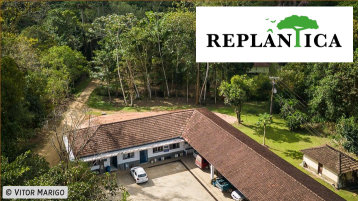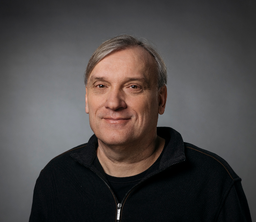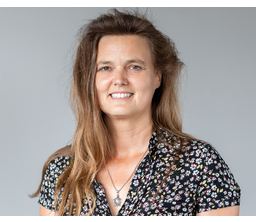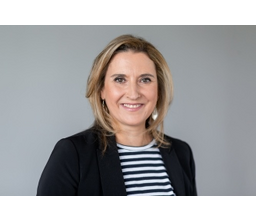REPLÂNTICA – Training programme for the restoration of the Atlantic coastal forest (Mata Atlântica)

The REPLÂNTICA project – Capacity building in forest restoration: biodiversity and climate protection in the Mata Atlântica – unites science and practice. A user-oriented training programme for the biodiversity- and climate-friendly reforestation of degraded pastureland in Brazil is being collaboratively developed.
Restoration for biodiversity and climate protection
The Mata Atlântica is a hotspot of biodiversity. Due to deforestation and soil degradation, only 12.4% of the original forest area remains. Mostly small, isolated fragments cannot guarantee biological diversity and the associated ecosystem services. Although Brazilian legislation obliges landowners to reforest at least 20% of their land, the success of ecological restoration of forest ecosystems is insufficient.
The ITT and project partner REGUA are developing training courses for six relevant target groups. In courses tailored to their needs, they learn how to renaturalise their degraded land in a nature conservation-oriented way. The aim is to create synergies with global goals and involve companies in long-term partnerships for sustainability. The project builds on existing local and regional networks of REGUA and ITT.
At a Glance
| Category | Description |
|---|---|
| Research project | REPLÂNTICA – Capacity building in forest restoration: biodiversity and climate protection in the Mata Atlântica |
| Management |
Prof. Dr. Udo Nehren (project lead) Prof. Dr.-Ing. Klaus Becker (authorised representative) |
| Faculty | Faculty of Spatial Development and Infrastructure Systems More |
| Institute | Institute for Technology and Resources Management in the Tropics and Subtropics (ITT) More |
| Partners | Reserva Ecológica de Guapiacu (REGUA) More |
| Sponsors |
IKI Medium Grants (Federal Ministry for the Environment, Nature Conservation, Nuclear Safety and Consumer Protection) More |
| Duration | January 2024 - December 2026 |
Training, information and exchange
ITT and REGUA are cooperating by jointly developing training courses aimed at various local and cross-sectoral target groups, including landowners, multipliers and the public. The courses provide them with practical information on the benefits of ecological restoration for the respective target group and enable them to actively shape biodiversity and climate-friendly changes themselves.
Biodiversity, ecosystem services and climate protection
The customised training courses start at local level in the Guapiaçu water basin, whose forestation is considered strategically important for the drinking water supply of 2.5 million people downstream.
REGUA and ITT will provide practical and scientifically sound information on biodiversity, climate change mitigation and ecosystem services in three modules. The training modules will focus on the use of native species for forest restoration and on understanding the role of biodiverse forests as a guarantor of essential ecosystem services such as water supply.
The first module teaches theoretical and practical skills for the ecological restoration of forest areas, while the second module focuses on the evaluation and management of the restoration measures to be carried out. The third module develops strategic skills for finding funding opportunities. In matchmaking events, course participants are brought together with the private sector to enable companies to demonstrate their corporate sustainability by supporting restoration activities. Course participants, trainers, companies and the interested public are invited to become part of the REPLÂNTICA Corporate Sustainability Network. Upon completion of the course, participants will receive course certificates that will open up future employment opportunities in this field.
Specific Project Goals
Promote understanding
Through training courses, the project promotes an understanding of ecologically orientated forest restoration, biodiversity conservation and climate change adaptation. This knowledge will also be retained after the project, as one of the aims of the training courses is to train trainers who can pass on the theoretical and practical knowledge they have acquired, advocate for sustainability and thus bring about change in their communities. These multipliers expand knowledge about renaturalisation and adaptation to climate change.
Create capacities and self-efficacy
The project builds capacity and empowers individuals to restore degraded areas independently. By imparting the necessary skills and knowledge, landowners and interest groups can continue the restoration measures even without project support, thus ensuring the conservation of measures and the protection of the Mata Atlântica.
Strengthen awareness of the importance of one's own actions
The project emphasises the link between local restoration of forest ecosystems and global development goals. By empowering participants to actively contribute to ecological restoration and linking them to global initiatives that protect biodiversity and the climate, ownership is strengthened in the long term.
Provide knowledge for similar projects
Methods and experiences are documented in the project and the course materials are optimised so that they can serve as a resource for other regions and organisations. By passing on knowledge, the project inspires and empowers other actors to initiate similar measures elsewhere. In this way, the project's activities help to maintain and continue the goals achieved beyond the project period.









